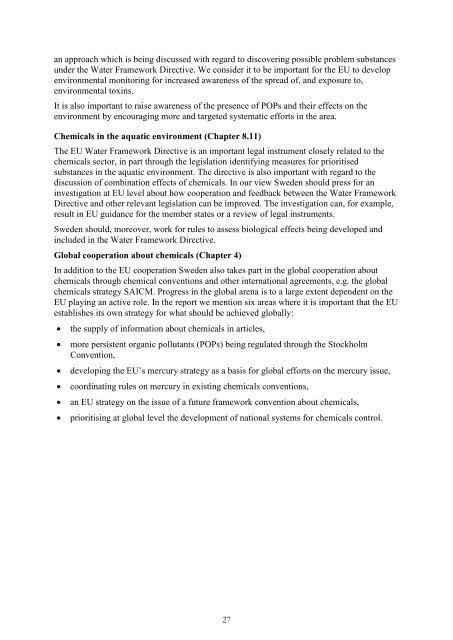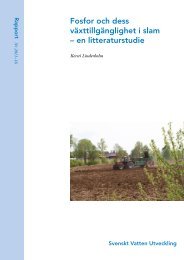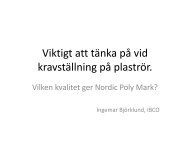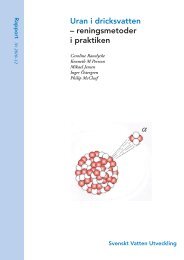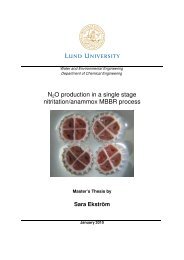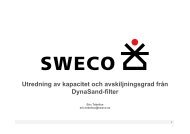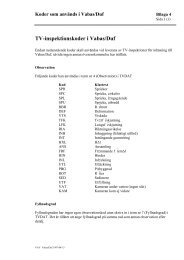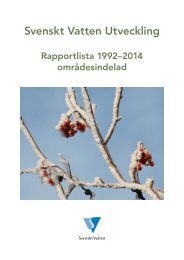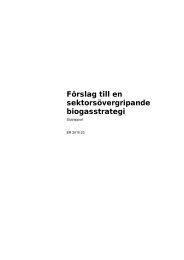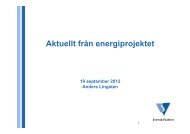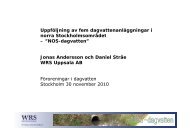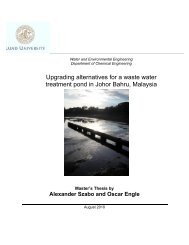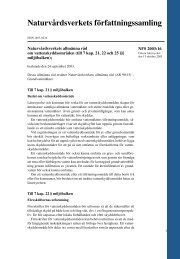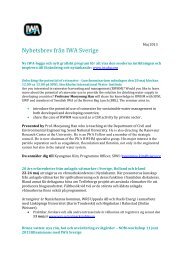Bättre EU-regler för en giftfri miljö - Kemikalieinspektionen
Bättre EU-regler för en giftfri miljö - Kemikalieinspektionen
Bättre EU-regler för en giftfri miljö - Kemikalieinspektionen
Create successful ePaper yourself
Turn your PDF publications into a flip-book with our unique Google optimized e-Paper software.
an approach which is being discussed with regard to discovering possible problem substances<br />
under the Water Framework Directive. We consider it to be important for the <strong>EU</strong> to develop<br />
<strong>en</strong>vironm<strong>en</strong>tal monitoring for increased awar<strong>en</strong>ess of the spread of, and exposure to,<br />
<strong>en</strong>vironm<strong>en</strong>tal toxins.<br />
It is also important to raise awar<strong>en</strong>ess of the pres<strong>en</strong>ce of POPs and their effects on the<br />
<strong>en</strong>vironm<strong>en</strong>t by <strong>en</strong>couraging more and targeted systematic efforts in the area.<br />
Chemicals in the aquatic <strong>en</strong>vironm<strong>en</strong>t (Chapter 8.11)<br />
The <strong>EU</strong> Water Framework Directive is an important legal instrum<strong>en</strong>t closely related to the<br />
chemicals sector, in part through the legislation id<strong>en</strong>tifying measures for prioritised<br />
substances in the aquatic <strong>en</strong>vironm<strong>en</strong>t. The directive is also important with regard to the<br />
discussion of combination effects of chemicals. In our view Swed<strong>en</strong> should press for an<br />
investigation at <strong>EU</strong> level about how cooperation and feedback betwe<strong>en</strong> the Water Framework<br />
Directive and other relevant legislation can be improved. The investigation can, for example,<br />
result in <strong>EU</strong> guidance for the member states or a review of legal instrum<strong>en</strong>ts.<br />
Swed<strong>en</strong> should, moreover, work for rules to assess biological effects being developed and<br />
included in the Water Framework Directive.<br />
Global cooperation about chemicals (Chapter 4)<br />
In addition to the <strong>EU</strong> cooperation Swed<strong>en</strong> also takes part in the global cooperation about<br />
chemicals through chemical conv<strong>en</strong>tions and other international agreem<strong>en</strong>ts, e.g. the global<br />
chemicals strategy SAICM. Progress in the global ar<strong>en</strong>a is to a large ext<strong>en</strong>t dep<strong>en</strong>d<strong>en</strong>t on the<br />
<strong>EU</strong> playing an active role. In the report we m<strong>en</strong>tion six areas where it is important that the <strong>EU</strong><br />
establishes its own strategy for what should be achieved globally:<br />
• the supply of information about chemicals in articles,<br />
• more persist<strong>en</strong>t organic pollutants (POPs) being regulated through the Stockholm<br />
Conv<strong>en</strong>tion,<br />
• developing the <strong>EU</strong>’s mercury strategy as a basis for global efforts on the mercury issue,<br />
• coordinating rules on mercury in existing chemicals conv<strong>en</strong>tions,<br />
• an <strong>EU</strong> strategy on the issue of a future framework conv<strong>en</strong>tion about chemicals,<br />
• prioritising at global level the developm<strong>en</strong>t of national systems for chemicals control.<br />
27


